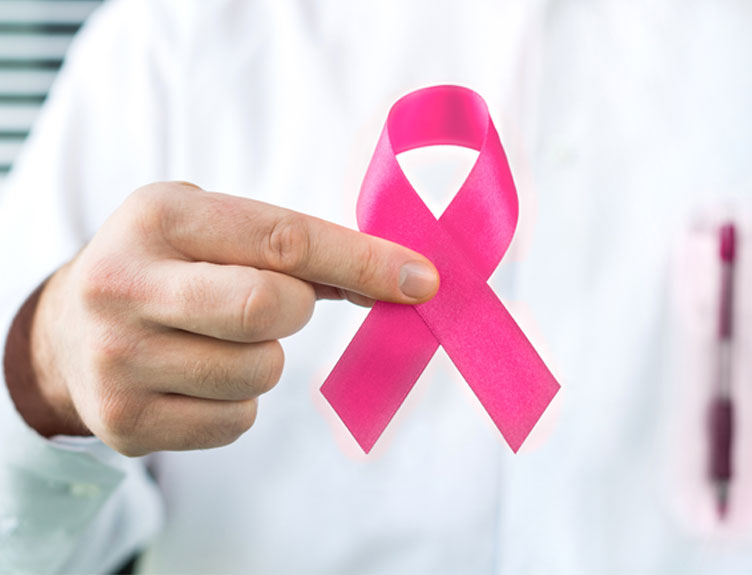RCSI scientists find new hope in fight against hard to treat form of breast cancer

Doctors may in the future be able to spare some cancer patients the harsh effects of chemotherapy thanks to new research carried out at RCSI and funded by the Irish Cancer Society. The RCSI research team, who are part of the Irish Cancer Society cancer research centre, BREAST-PREDICT, have developed a tool which may predict how effective chemotherapy is likely to be in treating triple-negative breast cancer patients.
This early stage research was led by Irish Cancer Society funded PhD student Federico Lucantoni, under the supervision of Jochen Prehn, Professor of Physiology and Director of RCSI’s Centre for Systems Medicine.
More than 250 people are diagnosed with triple-negative breast cancer each year in Ireland. This form of breast cancer is often aggressive, difficult to treat and tends to be more common in younger women.
For chemotherapy to work it has to kill cancer cells in the body. Researchers at RCSI in Dublin have identified a mathematical formula on cells with triple negative breast cancer to predict how effective chemotherapy would be in killing them.
By using their formula in the lab, the research team now predicts that triple negative breast cancer cells may respond to a new drug already being used to treat some leukaemia patients. Their study showed that BCL2 inhibitors can enhance the response of cancer cells to chemotherapy.
Professor Jochen Prehn said: “At the moment the only form of drug treatment available to patients with triple-negative breast cancer is chemotherapy. While this will work well for some patients, others may find that their cancer cells don’t respond as well as might be hoped to chemo, leading to patients suffering the side effects of this treatment without any of the desired outcomes.
“We hope that, if successful in further testing, our research may one day allow doctors to give women more tailored and effective treatments, and spare the harsh side-effects of chemotherapy in women who are unlikely to respond well to it.“
The research team’s findings were recently published in the Nature journal ‘Cell Death and Disease’. They are now continuing this research by testing their formula in more advanced breast cancer models in the laboratory. This will fine-tune their work to potentially make it suitable for patient trials.
Dr Robert O’Connor, Head of Cancer Research at the Irish Cancer Society, added: “This paper highlights vital work being undertaken to identify new ways to improve the treatment of cancer. This research is in quite early stages and it will be many more years until any potential benefits reach cancer patients. But it does show the building blocks required to lay the foundations for life-saving cancer research. The more we understand this disease, the better chance we have of stopping it in its tracks.
“The Irish Cancer Society can only invest in vital research because of the public’s generous support. We currently fund more than 100 researchers across Ireland and have spent €25 million on life-saving cancer research since 2010. To continue doing this, we need everyone to get involved in Daffodil Day on Friday, March 23. Your support saves lives.”
About BREAST-PREDICT
The Irish Cancer Society cancer research centre ‘BREAST-PREDICT’ is a country-wide collaboration between experts in the area of breast cancer research. This virtual centre is funded solely by donations to the Irish Cancer Society, which has committed a five-year investment of €7.5 million to the project.
BREAST-PREDICT brings together researchers from six academic institutions across Ireland: UCD, TCD, RCSI, DCU, NUIG and UCC, and a nationwide clinical trials group, Cancer Trials Ireland. As a multi-disciplinary centre it unites breast cancer experts with different skills to work towards a common goal.
The centre collects information and tumour samples from nearly every breast cancer patient in the country, with their consent. Using these valuable resources, researchers will improve our understanding of how this disease can spread and become resistant to treatment, and find ways to combat this with new and better treatments. www.breastpredict.com.
The Cell Death and Disease paper ‘Systems modelling accurately predicts responses to genotoxic agents and their synergism with BCL-2 inhibitors in triple negative breast cancer cells’ by Federico Lucantoni et al can be viewed here.



